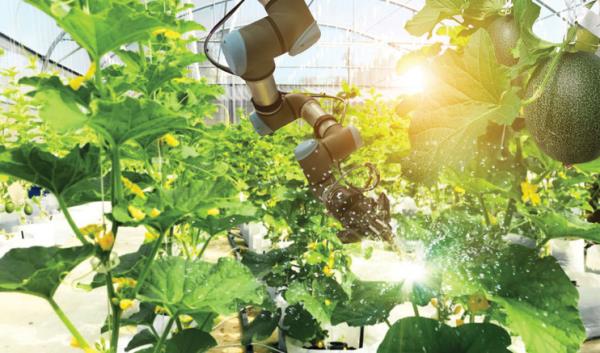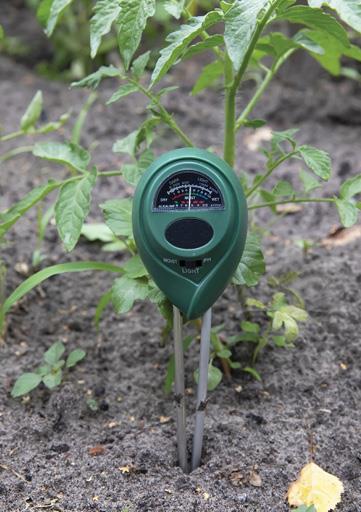16 December 2022
Twiga Foods is a Kenyan technology enabled B2B food distribution platform which builds fair and reliable markets for agricultural producers, food manufacturers and retailers with a focus on transparency and efficiency.
The company sources produce from more than 17,000 producers and delivers to more than 8,000 retailers around three times a week. Twiga’s digital platform and logistics network links retailers with farmers and food manufacturers, presenting a convenient and reliable alternative to the current inefficient and expensive farm/factory-to-market processes.
To drive its mission forward, Twiga plans to develop technology-driven commercial solutions to solve the challenge of food security in Africa. As part of this mission, Twiga foods was looking to deploy a smart agriculture solution in one of its farms as a pilot, which could be replicated across their other farms in the country.
Twiga’s Takuwa farm in Nairobi, Kenya was chosen, having been experiencing restricted growth due to insufficient water. The farm was also struggling with proper soil and fertilization management owing to lack of precise soil moisture, weather, and water quality data.
Smart farm transformations
With the potential of the Internet of Things (IoT) to transform agricultural productivity in Kenya and indeed the world at large - affording greater food security and improved incomes for farmers - Twiga Foods partnered with Liquid Intelligent Technologies Kenya to employ farming, enabled by Kenya’s rapidly expanding Internet of Things (IoT) network.
“Climate change and global warming has brought about unpredictability in terms of weather patterns,” said Peter Njonjo, CEO at Twiga Foods. “Adopting smart agriculture solutions that use IoT will enable farmers gain better information for managing their input costs and increasing their crop yield, thereby encouraging food security in the country.”
Liquid Intelligent Technologies deployed a comprehensive precision agriculture IoT system at Takuwa Farm, increasing productivity and helping transform it into an intelligent farm. The system includes four different types of agriculture sensors: a comprehensive weather station; soil moisture and temperature probes; borehole water meters; and sensors for measuring irrigation water acidity and salinity. It utilises Liquid Intelligent Technologies’ extensive low-power wide area IoT network using 0G Sigfox technology, which covers 85% of the population in Kenya at lower costs than other technologies.

With the system, the farm managers were able to move on from manual readings and historic analysis to automatic and real-time/predictive analysis. The sensors provide critical information to the Twiga agronomy team, while the smart weather station provides real time data that helps farm managers deploy the most effective farming methods for irrigation and application of pesticides. Meanwhile, the water quality sensors provide specific metrics that help the team to optimize their fertilizer application. Additional data gathered and monitored on a real time basis include temperature, humidity, rainfall, and wind speed.
The soil probes installed at Twiga’s Takuwa farm measures moisture levels and temperature at six different depths into the soil, giving precise information of soil quality and irrigation needs at the roots of specific crops. This is set to directly increase yield and productivity.
Saving up to 30%

Since the IoT deployment, Twiga’s Takuwa farm is increasing farm production due to more precise application of inputs and faster reaction times to local weather and soil conditions. By applying inputs based on data received on hyper-local weather and soil and water content, Takuwa farm can also save on costs related to irrigation water/pumping, fertilizer, and pesticides.
“Increasing business efficiency through digital solutions is one of the main reasons we partnered with Liquid Intelligent Technologies,” said Peter Njonjo, CEO, Twiga Foods. “By using smart devices, we have automated multiple processes across the farm’s production cycle. For example, the use of soil probes in monitoring the soil moisture in the expansive farm has resulted in an efficient use of water, as irrigation is only done when the soil moisture level is low. I would encourage other farms to also deploy IoT solutions to aid in food security for our country.”
Similar deployments of this IoT technology have resulted in as much as 30% savings on irrigation water, which directly translates to electricity cost savings, and up to 25% increases in crop yields. Man-hours have also been reduced by 50%.
“I am excited about this partnership because, at Liquid Intelligent Technologies, we strive to be at the forefront of technological innovation that continues to bring positive transformation in many sectors of the society, including agriculture,” said Adil Youssefi, Liquid Intelligent Technologies CEO East Africa. “Having now deployed our intelligent farming expertise on the Twiga Foods Takuwa Farms through the use of our IoT sensors will increase productivity and efficiency, ultimately contributing to the national Big 4 Agenda.”







